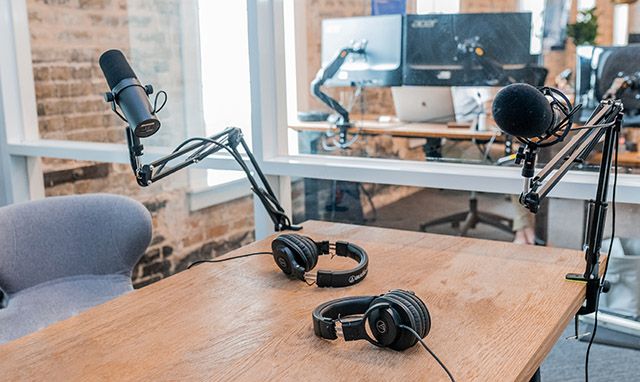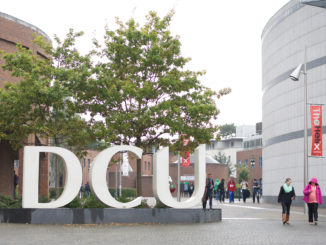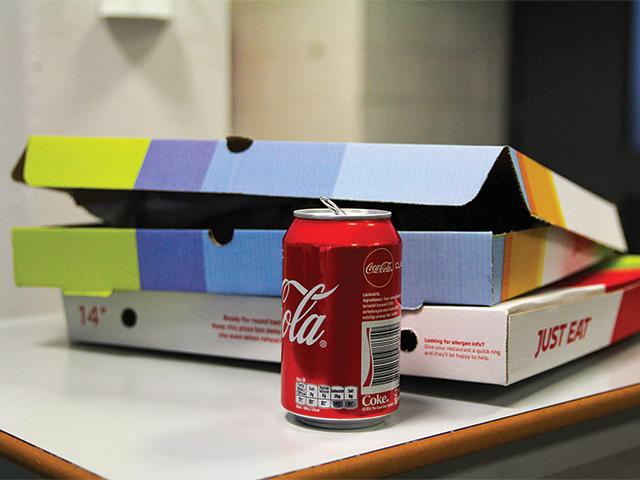
[dropcap]P[/dropcap]odcasts have risen to become one of the most engaging, intimate and versatile forms of media in recent years, with a combined total of 56 million monthly listeners tuning into them on Spotify and Apple Podcasts in March 2021.
This popularity can be attributed partly to podcasts’ versatility. Podcasters can record and talk about whatever they like, no matter the topic, genre, mood or style. With 2.2 million podcasts being reported by Spotify to be on their platform in 2020, there are podcasts out there to cater to listeners with even the most niche of interests.
Unlike with other media such as television and radio, this versatility grants podcasters with newfound liberties, such as having no limits on run-times per episode, little adherence to schedules, and a lack of third-party involvement. Producing a podcast can be done entirely independently.
This is perfect for students, whose time and dedication is (ideally) spent on their studies and assignments. Students looking to record a podcast can easily do so, as the production process can be done entirely in their spare time, on their own terms.
Due to this, there has been a rise in student podcasters, with many of them using podcasts as an outlet to express themselves, enthuse in their interests, voice their opinions, or just to simply have a laugh. However, despite the lax nature of podcast production, there still are pitfalls that student podcasters can fall into.
There is a tendency among new podcasters to include all their ideas for their podcast prematurely before the podcast has found its footing and gained a following, says Sarah Mackin, DCU student and cast member for The Lovely Spread podcast, a weekly student chat-show. She adds that aspiring podcasters should keep their expectations grounded, as new shows will not amass high listener counts and could take a while to gain traction.
“There’s no point in setting yourself up to be the podcast to end all podcasts,” she said.
“Set yourself realistic goals. Know where you’ll be at in two months’ time, six months’ time, instead of just trying to throw out everything at once.”
Additionally, many student podcasters fall into the pitfall of uploading too irregularly and infrequently, which can be discouraging for listeners and dampen their engagement, says Dan Kavanagh, music production student at DCU and another member of the Lovely Spread.
“In any kind of content-related industry you want regular content, because when it starts getting inconsistent, people lose interest,” they said.
“If you just keep going, eventually you’ll get somewhere,” Mackin added.
“It takes time to do things. Every week you’ll make improvements. You’ll keep getting better, and that’s what will get you past that stump you might find yourself in.”
The need for consistency was echoed by Aaron Downey, broadcast production student in Kerry College and co-host of the Near Falls Podcast, a weekly wrestling review show.
He adds that with consistency, podcasters can more quickly improve their show by learning from their mistakes, noting that mistakes will be inevitable when starting out.
“When you first start, you’ll stop and stumble a lot, but you start getting better immediately,” he said. “When I go back to [my first episode], I cringe. The difference between then and now is insane.”
Downey says that when recording yourself, you shouldn’t abide by a strict script, as audiences prefer a looser conversational tone, adding that enthusiasm is important in maintaining their interest.
“If you’re having fun while [podcasting], people will connect to that,” he said. “If it’s too scripted, it sounds robotic. It’s not a natural way of getting entertained.”
Nowadays, there are fewer technical barriers in front of aspiring podcasters than ever before, thanks to advancements in consumer technology and software.
The quality of microphones on smartphones and laptops has become good enough to act as a sufficient entry point, with Sarah Behan, DCU student and final member of the Lovely Spread, adding that she used her laptop’s microphone for the first few episodes before buying a specialised microphone.
Additionally, free editing and mixing software such as Audacity has allowed creators to whittle down and fine-tune their audio into a compact and digestible package. Downey adds that he used Audacity for when he first started recording and thought that it was proficient enough to produce his series.
Podcasters can use podcast distribution services such as Anchor and Transistor to post their episodes onto various platforms such as Spotify and Apple Podcasts, with options to schedule a specific time and date to upload. These services can also send you analytics of your show and assist with monetisation options once your audience grows.
“Anchor as a host website is excellent,” said Behan. “It does all the work for you.”
Social media has been pivotal in establishing these podcasts’ presence and making them more engaging for their listeners. Podcasters can use it to promote their shows and get feedback from fans to help improve their show. Kavanagh adds that they post polls and questions to their social media pages and discuss the answers on their show, which encourages fans to be actively involved with them.
Finally, recording the podcasts has been beneficial to the mental wellbeing of all podcasters interviewed, with all of them agreeing that they’ve been instilled with an increased sense of self-confidence and strengthened bond with one another since they began their shows.
“It’s been a real confidence booster,” said Mackin. “It’s a lot more fun than I thought it was going to be, and it’s become a lot more easy to be open.”
[The relationship between me and my co-host] has definitely gotten stronger I think,” said Downey. “I’ve gotten to look at things from his perspective.”
“Personally, I’ve become a lot more confident in talking,” he added. “It’s been a great way to improve myself.”
Daniel Durand
Image credit: Austin Distel on Upsplash



